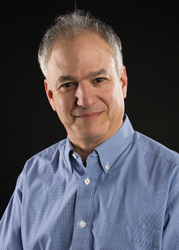Testicular cancer rising among Hispanic youth, young adults
Posted by Elena del Valle on July 16, 2014

Rebecca H. Johnson, M.D., co-author, Increase in Testicular Germ Cell Tumor Incidence Among Hispanic Adolescents and Young Adults in the United States
Photos: Stephen M. Schwartz, Rebecca H. Johnson, Franklin L. Chien
An article published in Cancer, a a peer-reviewed journal of the American Cancer Society, points to a recent substantial increase in testicular germ cell tumor incidence among Hispanic adolescents and young adults in the United States. The trend was not evident among non-Hispanic whites.
Testicular cancer, among the most common types of cancer in adolescent and young adult men, is said to be one of the most readily treatable. The researchers concluded that heightened awareness is advisable concerning the increasing risk of testicular cancer among Hispanic adolescents and young adults. They recommend additional research to determine the cause of the trend.

Frank Chien, co-author, Increase in Testicular Germ Cell Tumor Incidence Among Hispanic Adolescents and Young Adults in the United States
The article, Increase in Testicular Germ Cell Tumor Incidence Among Hispanic Adolescents and Young Adults in the United States, was authored by Franklin L. Chien, BA, Rebecca H. Johnson, M.D., and Stephen M. Schwartz, Ph.D., MPH.
They found that between 1992 and 2010, the annual incidence of testicular cancer in 15 to 39 year-old Hispanic whites increased 58 percent from 7 cases per 100,000 in 1992 to 11 cases per 100,000 by 2010.
Incidence rates increased in cities for different subtypes of testicular cancer and for all stages of the disease. In the same 19 year interval, testicular germ cell tumor incidence among non Hispanic white young adults increased 7 percent, from 12 to 13 per 100,000. During the 2000 to 2010 period, incidence rates rose in Hispanic whites, but the researchers observed no significant trends in incidence rates among non Hispanic whites.
“Hispanic Americans comprise the fastest growing ethnic group in the United States. Until only recently, cancer incidence data for this population has been too sparse to accurately analyze testicular cancer trends among Hispanic men,” Johnson said in a press release. “The increasing rate of testicular cancer in adolescent and young adult Hispanic males, combined with the rapid expansion of the Hispanic population in the United States, is projected to have a measurable impact on the United States healthcare system.”

Steve Schwartz, Ph.D., MPH, co-author, Increase in Testicular Germ Cell Tumor Incidence Among Hispanic Adolescents and Young Adults in the United States
“Unfortunately, there’s nothing that Hispanic men can do to minimize their risk, since nothing is known for certain about modifiable risk factors,” said Schwartz by email in response to a question about preventive measures Hispanic men might take.
Johnson noted that, in the past, non Hispanic white men have had the highest rate of testicular cancer of all racial and ethnic groups in the United States. Should the trend found in this study continue, the rate of testicular cancer among Hispanic Americans will outpace that of non Hispanic white men within the next few years.









